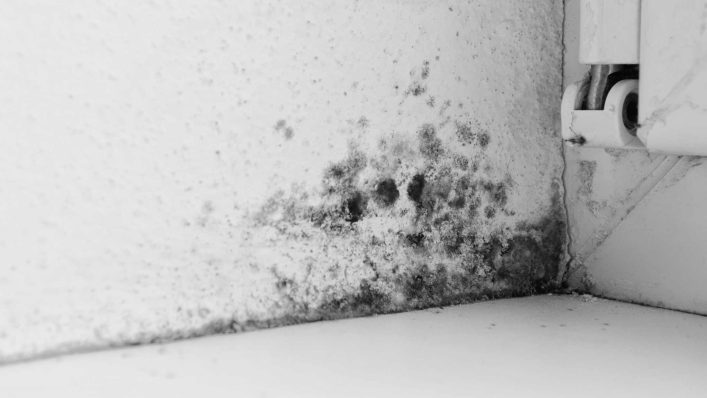Pricing commercial cleaning jobs can be challenging, especially when you have a variety of tasks to complete. One of the most effective ways to approach pricing is to divide tasks into two categories: More Time-Consuming (MTC) and Less Time-Consuming (LTC). By understanding how to balance these two types of tasks, you can provide more accurate quotes and ensure your cleaning business remains profitable.

Categorising Tasks: MTC vs. LTC
Before you start pricing, it’s important to break down each job and identify which tasks fall under the MTC and LTC categories.
- More Time-Consuming Tasks (MTC) are those that require more effort, time, or specialised equipment. These tasks often demand attention to detail and thoroughness. For example:
- Deep cleaning carpets in high-traffic areas.
- Stripping and re-waxing floors in large office buildings.
- Window cleaning for multi-storey buildings.
- Biohazard cleaning, such as in hospitals or after a trauma incident.
- Less Time-Consuming Tasks (LTC) are more routine cleaning duties that take less time to complete and usually don’t require any specialised skills. Common examples include:
- General office cleaning like wiping down desks and emptying bins.
- Mopping and vacuuming of small areas.
- Cleaning washrooms and replenishing supplies.
Example: Office Building Cleaning
Let’s say you’re pricing a contract for cleaning an office building. Some tasks, such as daily bin emptying and wiping down desks, are LTC tasks. However, once a month, the client might request a deep clean of the carpets, which is an MTC task. By identifying these two types of tasks, you can adjust your pricing to reflect the additional labour and materials required for the deep cleaning.
Estimating Time and Labour Costs
Once you’ve identified which tasks are MTC and LTC, estimate how long each will take. MTC tasks will naturally take more time. For example, deep cleaning a carpeted floor in a 500 square metre office could take several hours, especially if specialised equipment is involved.
To calculate labour costs, consider:
- Hourly wage of your cleaners.
- Task duration based on the estimated time for both MTC and LTC tasks.
- Overheads such as transportation, cleaning supplies, and equipment maintenance.
In this example, if cleaning a large area of carpet takes five hours and you pay your cleaner £12 per hour, the cost of labour for this task would be £60. For LTC tasks like general office cleaning, which might take one hour daily, your cost is significantly lower at £12 per session.
Consider Equipment and Material Costs
Tasks like window cleaning or biohazard cleaning require specialised equipment and cleaning products. For example:
- MTC tasks: A window cleaning job on a multi-storey building may require ladders or a cherry picker, which will incur rental costs. Similarly, biohazard cleaning requires specialised protective gear and disinfectants.
- LTC tasks: On the other hand, tasks like mopping floors or wiping down surfaces typically only require basic cleaning supplies.
Be sure to factor in these costs when pricing your services.
Frequency and Pricing Adjustments
The frequency of cleaning services can also affect your pricing. A one-off deep clean (usually an MTC task) might have a higher cost, while regular LTC tasks, such as daily cleaning, are usually priced lower due to the recurring nature of the job.
For example, a monthly carpet deep clean in a large office might be priced at £250 due to the time and effort required, while daily cleaning of desks and floors could be priced at £50 per visit.
Creating a Transparent Pricing Structure
When quoting for commercial cleaning jobs, it’s important to be transparent with your clients. Break down the quote by separating MTC tasks from LTC tasks. This way, clients understand why certain tasks are more expensive and can see the value in both types of services.
For instance, you might present your quote like this:
- MTC tasks: Deep carpet cleaning – £250 per visit (once a month)
- LTC tasks: Daily office cleaning – £50 per visit (five days a week)
By being clear about how you calculate costs, you build trust and make it easier for clients to choose the level of service that suits their needs.
Offer Tiered Pricing Options
Another effective strategy is to offer tiered pricing packages. This allows clients to choose between different levels of service:
- Basic Package: Includes LTC tasks like daily cleaning.
- Standard Package: Includes LTC tasks plus periodic MTC tasks like monthly deep cleaning.
- Premium Package: Includes both MTC and LTC tasks with more frequent cleaning schedules.
For example, a premium package for an office might include daily office cleaning, bi-weekly window cleaning, and monthly carpet deep cleaning.
Additional Considerations
- Task-Specific Training: MTC tasks often require more training or expertise. For example, cleaners dealing with biohazard materials or using heavy-duty equipment will need additional training, which should be reflected in your pricing.
- Customisation for Client Needs: Some clients may require eco-friendly cleaning products or have specific cleaning schedules. Tailor your pricing to meet their individual needs, especially when these demands impact MTC tasks.
- Profit Margins: Always ensure that your pricing includes a profit margin. MTC tasks, due to their complexity and longer duration, should generally carry a higher margin than LTC tasks.








